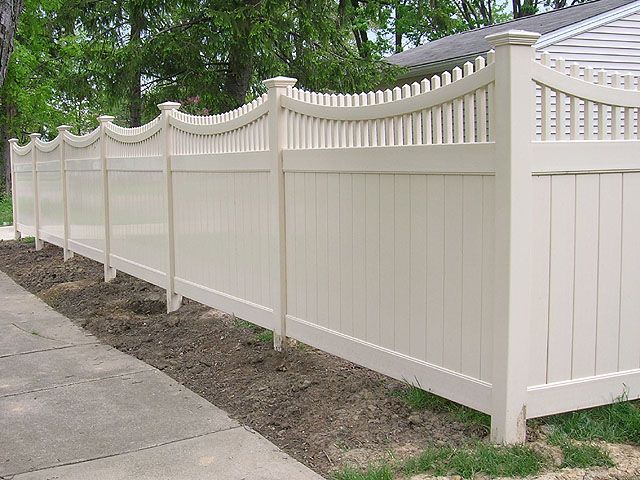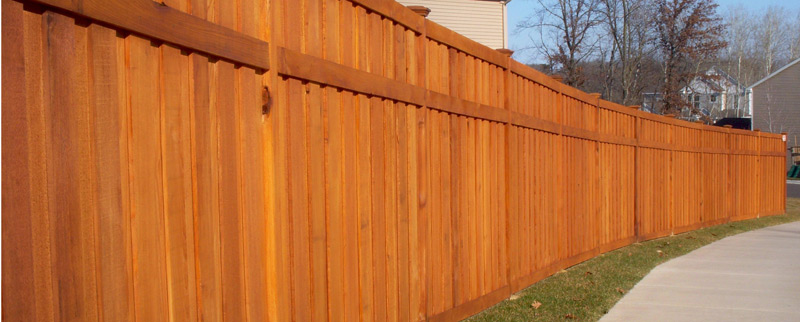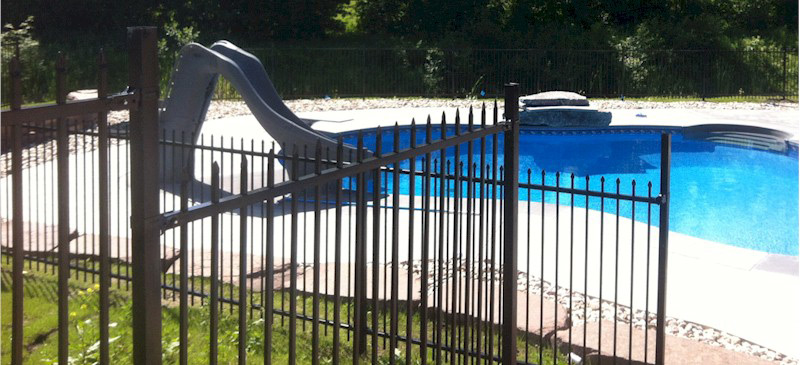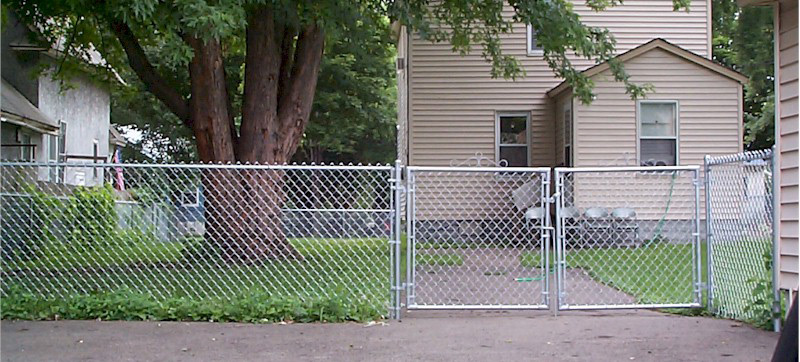Vinyl/PVC Fences
Pros
- Low maintenance.
- Do not need to be painted or stained.
- Easy to clean.
- Immune to pests and fungus.
- Vinyl does not produce splinters, which makes it a great choice especially if you have small children or pets.
- Great aesthetics. The appearance of vinyl fences is very similar to wood.
- Lasting power and strength. Lasts much longer than wooden fence and is nearly 5 times stronger than wood. This means you will be getting more for your money and are investing in something that should last a lifetime.
- Flexible and will not snap or break off as easily as wood.
Cons
- Higher upfront cost compared to wood fences. However, because of low maintenance, the overall cost can be offset. Because you will not need costly maintenance, you actually save some money in the end.
- Vulnerable to extreme temperatures. They may become brittle when constantly exposed to cold or hot temperatures, making them prone to damage. Frequent heating and cooling of vinyl fences result in the contracting and expanding of components, making the components loose and gradually damaging them.
- When a single board in your vinyl fencing gets damaged, you may have to replace the entire section, which leads to costly repairs.
Wood Fences
Pro:
- Classic, timeless look.
- Durable
- Most affordable fencing option. Other materials, such as wrought iron, are expensive to produce and to install.
Con:
- Difficult to maintain.
- Wood is more likely to rot and be infected by insects. This can happen more quickly if the post is set directly into the ground.
- It requires regular maintenance, which is very essential to keep the wood sealed and protected.
- It also needs to be painted and coated on a regular basis to keep it from cracking and the paint coat from peeling off.
Iron Fences
Pro
- Strength. Iron fencing is much stronger than other common fencing materials such as wood or vinyl.
- Durable. Iron fences will last much long than other fences.
- Easy to Maintain. For the most part, these fences are easy to maintain especially if they are painted. Paint will keep the tiny pits that may form in the metal from collecting substances that may cause them to corrode.
- Can be designed. The alloy itself has an elastic and malleable nature that many artists and designers can shape into interesting patterns. There are books and websites that feature interesting wrought iron fence designs and photos which are great for finding ideas to use in ones home.
Con
- No privacy. Open designs usually feature iron bars that are close enough together to keep people out, but wide enough apart to look through.
- Will Show Weather Damage Over Time. There are conflicting studies about whether wrought iron is better or worse than other iron alloys at resisting corrosion. Either way the fact remains: if a wrought iron fence is weathered long enough, it will begin to corrode. Rust on wrought iron is particularly hard to deal with because of the slag in the metal.
- Expensive because of its material and the difficulty involved in producing it, is more expensive than wood and vinyl fencing. Additionally, one may find it slightly more expensive to install it as well, especially if the design of the wrought iron is custom made.
Chain Link Fences
Pro:
- Affordability. Chain link fence is the most affordable fence option which can be installed by home do-it-yourselfers, although a professional can ensure a tight, lasting installation that will perform well for years.
- Low Maintenance. Chain link fencing requires little or no maintenance. All chain link fencing is galvanized, meaning the metal wire fence material underwent a chemical process to protect it from rusting. This extends the life of the chain link and limits the maintenance.
- Safety. Chain link is popular as it contains children and pets in yards while also offering a sight link through it to allow watching activity on the other side.
Cons
- Security . While chain link fencing can be built tall, and barbed wire added to the top for security, that is typically done only in industrial and manufacturing settings. Homeowners typically use a four-foot chain link, which, as most people know, can be readily climbed over.
- Appearance. Without vinyl coating or California style construction, and given its popularity and use at industrial sites, chain link is considered a generic, more pedestrian fence design. Even with galvanization, chain link fencing and fence posts can be scratched.
- No Privacy. Chain link fence won’t keep prying eyes away. There is an option for putting slats in the chain link to improve privacy, but that isn’t often used.




